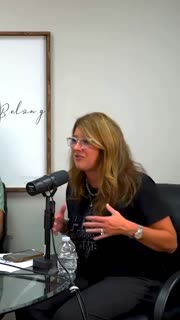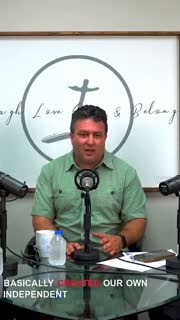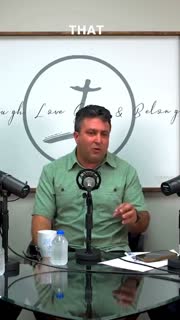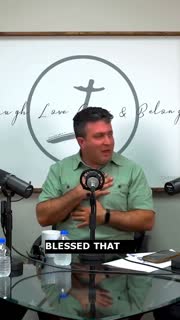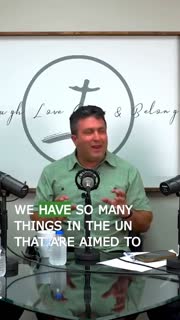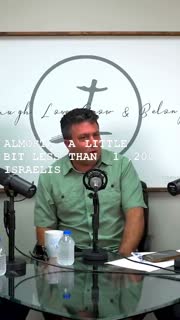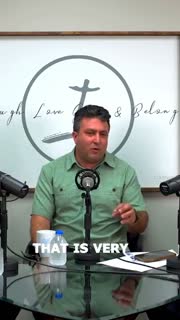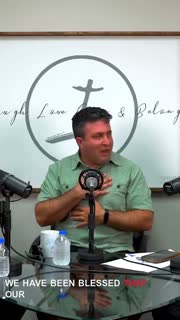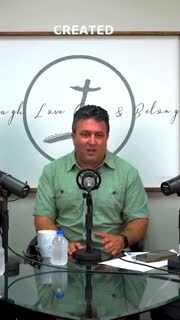Resilience and Hope: The Jewish Journey to Israel
Devotional
Sermon Summary
Bible Study Guide
Sermon Clips
### Quotes for Outreach
1. "If you want some joy in your life, come to Covenant on Sunday. It's a great, great place to be on Sunday morning. We have been here with my family, and I've never been to such a joyful place in my life. You learn. You enjoy. You feel spiritual. You cry. It's everything together. And you do an amazing job. You make people want to hug you." [32:54] (39 seconds)
2. "We basically created our own independent Jewish country, which was something that Jews always dreamt of since 2,000 years ago. They were killed out by the Romans. And it was very obvious that it was going to happen. Many people think it's colonization or a new thing. No. The Jews always wanted to live in Israel and to be independent. And it's promised to them in the scriptures." [02:39] (22 seconds)
3. "We have a group that is very radical, which is Hamas. Now, they have become so strong. But it's not only them, Alison. I have to tell you. That the idea of not accepting the Jewish independent state of Israel is an idea that the entire Arab leaders of the neighborhood never accepted since the beginning." [07:37] (23 seconds)
4. "We have been blessed that our educational system after a month and a half came back to function. So basically you, but you know, you, you always have to think if you want to, you know, if you, if you want to drive up north, if there'll be sirens, where are you going to, how, how are you going to hide if you know there's a rocket coming?" [21:29] (23 seconds)
### Quotes for Members
1. "We have so many things in the UN that are aimed to destroy us, against us, and one of them is, we have to mention it. It's an organization called UNRWA. UNRWA is basically a refugee, specifically, organization that was created for the Palestinians. They're using the UN at the beginning to look like innocent, but members of them were terrorists that killed people. It's a subject to study, to learn. I recommend the people to go and read about UNRWA." [15:04] (31 seconds)
2. "We have almost, a little bit less than 1,200 Israelis that were innocent. You know, some of them soldiers. Okay. We're talking about 345 people at the party. Thank you for your help. I'm sorry. Festival music. 100 people from one community, Kibbutz Berri, and dozens of them were abducted into Gaza. Yeah. Still in the caves, some of them, and the tunnels, waiting to be rescued or to be released." [13:12] (28 seconds)
3. "We have a group that is very radical, which is Hamas. Now, they have become so strong. But it's not only them, Alison. I have to tell you. That the idea of not accepting the Jewish independent state of Israel is an idea that the entire Arab leaders of the neighborhood never accepted since the beginning. Since the 19th, the 20th century, we find the Arab aristocracy of the land don't accept, they don't accept the fact that the Brits there or anything, they don't accept that the Jews will have a piece of the land." [07:37] (38 seconds)
4. "We have been blessed that our educational system after a month and a half came back to function. So basically you, but you know, you, you always have to think if you want to, you know, if you, if you want to drive up north, if there'll be sirens, where are you going to, how, how are you going to hide if you know there's a rocket coming?" [21:29] (23 seconds)
5. "We basically created our own independent Jewish country, which was something that Jews always dreamt of since 2,000 years ago. They were killed out by the Romans. And it was very obvious that it was going to happen. Many people think it's colonization or a new thing. No. The Jews always wanted to live in Israel and to be independent. And it's promised to them in the scriptures." [02:39] (22 seconds)
Ask a question about this sermon
1. "If you want some joy in your life, come to Covenant on Sunday. It's a great, great place to be on Sunday morning. We have been here with my family, and I've never been to such a joyful place in my life. You learn. You enjoy. You feel spiritual. You cry. It's everything together. And you do an amazing job. You make people want to hug you." [32:54] (39 seconds)
2. "We basically created our own independent Jewish country, which was something that Jews always dreamt of since 2,000 years ago. They were killed out by the Romans. And it was very obvious that it was going to happen. Many people think it's colonization or a new thing. No. The Jews always wanted to live in Israel and to be independent. And it's promised to them in the scriptures." [02:39] (22 seconds)
3. "We have a group that is very radical, which is Hamas. Now, they have become so strong. But it's not only them, Alison. I have to tell you. That the idea of not accepting the Jewish independent state of Israel is an idea that the entire Arab leaders of the neighborhood never accepted since the beginning." [07:37] (23 seconds)
4. "We have been blessed that our educational system after a month and a half came back to function. So basically you, but you know, you, you always have to think if you want to, you know, if you, if you want to drive up north, if there'll be sirens, where are you going to, how, how are you going to hide if you know there's a rocket coming?" [21:29] (23 seconds)
### Quotes for Members
1. "We have so many things in the UN that are aimed to destroy us, against us, and one of them is, we have to mention it. It's an organization called UNRWA. UNRWA is basically a refugee, specifically, organization that was created for the Palestinians. They're using the UN at the beginning to look like innocent, but members of them were terrorists that killed people. It's a subject to study, to learn. I recommend the people to go and read about UNRWA." [15:04] (31 seconds)
2. "We have almost, a little bit less than 1,200 Israelis that were innocent. You know, some of them soldiers. Okay. We're talking about 345 people at the party. Thank you for your help. I'm sorry. Festival music. 100 people from one community, Kibbutz Berri, and dozens of them were abducted into Gaza. Yeah. Still in the caves, some of them, and the tunnels, waiting to be rescued or to be released." [13:12] (28 seconds)
3. "We have a group that is very radical, which is Hamas. Now, they have become so strong. But it's not only them, Alison. I have to tell you. That the idea of not accepting the Jewish independent state of Israel is an idea that the entire Arab leaders of the neighborhood never accepted since the beginning. Since the 19th, the 20th century, we find the Arab aristocracy of the land don't accept, they don't accept the fact that the Brits there or anything, they don't accept that the Jews will have a piece of the land." [07:37] (38 seconds)
4. "We have been blessed that our educational system after a month and a half came back to function. So basically you, but you know, you, you always have to think if you want to, you know, if you, if you want to drive up north, if there'll be sirens, where are you going to, how, how are you going to hide if you know there's a rocket coming?" [21:29] (23 seconds)
5. "We basically created our own independent Jewish country, which was something that Jews always dreamt of since 2,000 years ago. They were killed out by the Romans. And it was very obvious that it was going to happen. Many people think it's colonization or a new thing. No. The Jews always wanted to live in Israel and to be independent. And it's promised to them in the scriptures." [02:39] (22 seconds)
